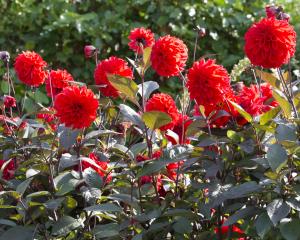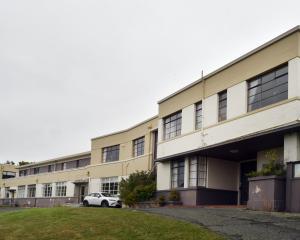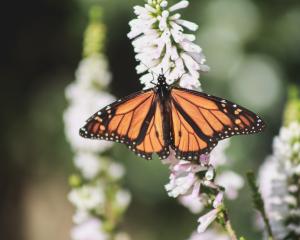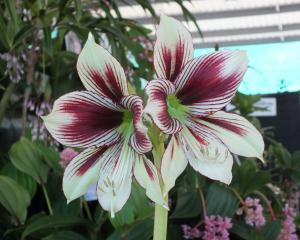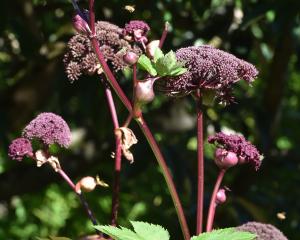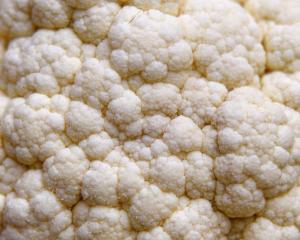As well as promoting heritage fruit trees that do well in the South, a Waitati man has taken a big step forward, Gillian Vine learns.
When Jason Ross established Sutherland Nursery a decade ago, his goals were to provide to customers disease-resistant varieties of heritage apples and pears that were proven performers in this part of the country.
He also developed permaculture design, site assessment and consultancy services to encourage people to integrate edibles into their garden landscapes.
About the same time, Mark and Rayna Dickson, who were supplying produce to Taste Nature from their 1ha Waitati Stores and Garden, took over the Dunedin shop.
One of a number of small local suppliers, the Dicksons wanted to continue to produce fresh vegetables for the shop, so they employed Mr Ross on a part-time basis.
Recently, they began to look to the future of Waitati Stores and Garden.
''It's not that we're retiring,'' Mrs Dickson says, ''but it's got to the point where Taste Nature takes so much of our time.''
Many small producers of organic produce are older and ''everyone's struggling, looking at how to get younger people involved [in an industry] that is hard work for not much money'', she adds.
Succession planning was important for a smaller business and, with that in mind, the Dicksons looked at how the garden could continue without them.
Mr Dickson says: ''As people start to age, it becomes harder to do their work. Succession on the land is a big issue.''
To ensure a seamless takeover, the obvious answer was to involve Mr Ross but, as Mrs Dickson says, ''there was no rule book; we've made it up as we've gone along. A synergy between the nursery, orchard and design brings it all together and is in keeping with the organic model. It's really exciting.''
''Jason has the skills to continue,'' Mr Dickson says.
Reflecting the trio's commitment to encouraging people to grow fruit and vegetables, he would like to see them looking at easy-care oldies like miner's lettuce (''a good one''), daikon, argula and Red Russian kale, the latter ''an absolute standout for winter'' in salads and stir-fries.
Mr Dickson appreciates having Sutherland Nursery - now called Habitate - on the Waitati site, as it enables what he calls a ''foldover effect'', with better crop rotation as vegetables replace young fruit trees as they are sold.
Working on organic principles (full certification of the garden is one of his aims), Mr Ross will continue to produce food for Taste Nature and grow apples, pears, plums and apricots suitable for local conditions.
The fruit trees are sold bare-rooted, which means their roots are not trimmed to fit into black plastic bags, and that gives them a better start in the home garden, Mr Ross explains.
''Here at Waitati I'm able to trial varieties and know which are the best to sell. I won't sell any that are disease-prone,'' he says pointing to an otherwise good-looking apple with black spot as being one that will not appear in his mail-order catalogue.
He has been involved in saving old kinds of apples and pears, but in the nursery, he has focused on old varieties whose names are known.
There is the odd exception, such as the unidentified pear with stunning orange-red skin he has dubbed ''Dicksons Red''.
Mr Ross' catalogue has expanded to some 25 apples and eight pears, as well as Moorpark apricots, black boy peaches, a locally sourced quince called Orokonui and half a dozen plums, including greengages.
''I think it's very important to get all those heritage varieties into people's backyards,'' Mr Dickson says.
''People are rediscovering things like greengages. They bring back those childhood memories.''
Mr Ross also sells rootstock to those who want to try their hand at grafting and is planning a spring workshop on how to do it. Fruit-tree pruning and planning techniques will be covered in winter workshops.
The orchard has ''a sense of peace, beauty and productivity'', he says, as planting to attract beneficial insects enhances it.
The first of this season's apples from Waitati are already among the dozen or more varieties on sale at Taste Nature, plus varieties sourced from Henley and Otago Peninsula growers.
Two part-timers and a succession of woofers - volunteers from Willing Workers on Organic Farms - help with the work, the current one being a young Scot, Hazel Forrest, who has been there for two months and plans to stay longer, as she ''loves'' the experience.
And for Mr Ross, Habitate ''is probably what I've always dreamed of''.
Taste it
Tasting sessions are helpful in demonstrating to people how different apples serve different purposes - eating, cooking, drying and cider-making. To get a taste of what is happening, with apple tasting on-site, there will be an open day on Sunday, March 23, from 2pm to 4pm, at Habitate farm, Harvey St, Waitati.

